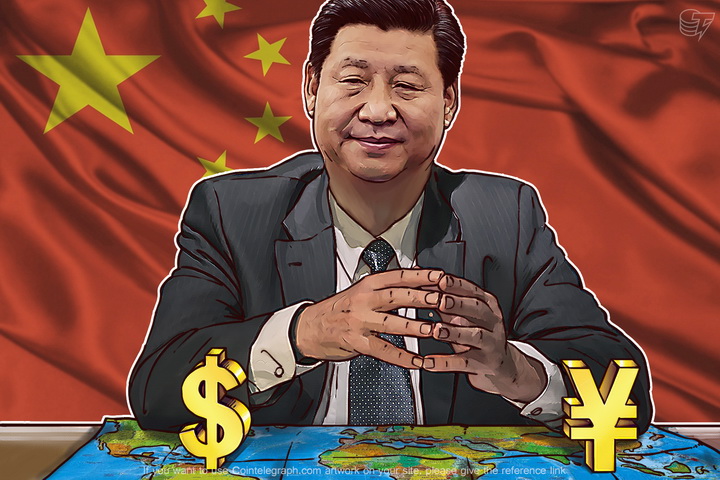China has stepped up yet another round of capital controls. It's central bank has just suspended some foreign exchange related services of several foreign banks. How will it impact the business of local Bitcoin exchanges and the overall bitcoin market?
The Chinese government hopes to stop ongoing capital outflows, mostly related to the depreciating yuan currency. Only a few months ago the government lowered withdrawal limits for credit cards.
Besides the obvious reasons for every fiat currency being inflated, after its recent entry into the global IMF reserve currency club, China needs to improve the Yuan's liquidity, which basically means printing even more. Smart people and investors who don't want to watch their wealth disappear can find safe haven in hard assets like precious metals, real estate and Bitcoin.
Chinese Bitcoin exchanges have indeed seen an influx of new customers over recent months. And the Bitcoin price rise from October to November coincides with another tightening of capital controls there. Though correlation doesn't mean a direct dependence. If you look at the price development these days, the new set of controls do not seem to be having an immediate impact on price action or volume. That can be partly attributed to the holiday season.
“Even though Huobi currently provides BTC-CNY and BTC-USD trade, Bitcoin trading volume is relatively small compared to other markets. So we believe that the impact of new FX policy will be limited,” Astrid Tao, operational and international marketing manager at Huobi, told Cointelegraph.
The largest BTC exchanges in China have declared already in the past that capital controls have had no meaningful impact on their business.
However there could be more and more people using Bitcoin as a store of value in the longer-term. “The investment channels in China are quite limited and the performance of real estate and commodity market now can't be seen as a positive. Foreign exchange controls will facilitate large volumes of capital seeking for investments and we believe Bitcoin is the option.”
According to Bobby Lee, CEO of BTCC, foreign currency controls in China do not have a significant impact on Bitcoin price or the number of people who trade bitcoin. “What does affect Bitcoin’s price is the perception of something big happening or something big that will happen. In the spring of 2013, for example, when there was the Cypriot financial crisis, there was a perception that the downgrading of Cyprus’s credit rating would lead to the euro’s downfall or at least a Eurozone crisis. Speculation based on that crisis boosted Bitcoin price at that time. “
He doesn’t think the recent adjustments to foreign currency controls will affect Bitcoin price or trading. “Capital controls have been in place in China for a long time, and they have already been factored into Bitcoin markets. The People’s Bank modifies capital controls from time to time. These are minor adjustments that do not have a noticeable impact on Bitcoin trading.”


